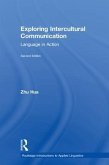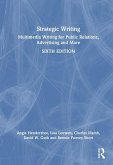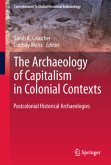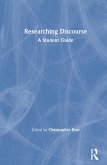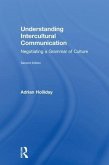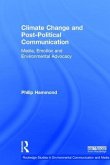Researching Interculturality in Post-Colonial Contexts
Indigenous Perspectives and Beyond
Herausgeber: Tavares, Vander
Researching Interculturality in Post-Colonial Contexts
Indigenous Perspectives and Beyond
Herausgeber: Tavares, Vander
- Gebundenes Buch
- Merkliste
- Auf die Merkliste
- Bewerten Bewerten
- Teilen
- Produkt teilen
- Produkterinnerung
- Produkterinnerung
This volume critically explores intercultural "encounters" between Indigenous and Eurocentric education in the post-colonial contexts of Brazil, Chile, and Mexico.
Andere Kunden interessierten sich auch für
![Exploring Intercultural Communication Exploring Intercultural Communication]() Zhu HuaExploring Intercultural Communication206,99 €
Zhu HuaExploring Intercultural Communication206,99 €![Strategic Writing Strategic Writing]() Angie HendershotStrategic Writing163,99 €
Angie HendershotStrategic Writing163,99 €![The Archaeology of Capitalism in Colonial Contexts The Archaeology of Capitalism in Colonial Contexts]() The Archaeology of Capitalism in Colonial Contexts81,99 €
The Archaeology of Capitalism in Colonial Contexts81,99 €![Researching Discourse Researching Discourse]() Researching Discourse168,99 €
Researching Discourse168,99 €![Computational Political Communication Computational Political Communication]() Computational Political Communication148,99 €
Computational Political Communication148,99 €![Understanding Intercultural Communication Understanding Intercultural Communication]() Adrian HollidayUnderstanding Intercultural Communication202,99 €
Adrian HollidayUnderstanding Intercultural Communication202,99 €![Climate Change and Post-Political Communication Climate Change and Post-Political Communication]() Philip HammondClimate Change and Post-Political Communication206,99 €
Philip HammondClimate Change and Post-Political Communication206,99 €-
-
-
This volume critically explores intercultural "encounters" between Indigenous and Eurocentric education in the post-colonial contexts of Brazil, Chile, and Mexico.
Hinweis: Dieser Artikel kann nur an eine deutsche Lieferadresse ausgeliefert werden.
Hinweis: Dieser Artikel kann nur an eine deutsche Lieferadresse ausgeliefert werden.
Produktdetails
- Produktdetails
- Verlag: Taylor & Francis Ltd
- Seitenzahl: 188
- Erscheinungstermin: 11. März 2025
- Englisch
- Abmessung: 234mm x 156mm
- ISBN-13: 9781032997933
- ISBN-10: 1032997931
- Artikelnr.: 72010492
- Herstellerkennzeichnung
- Libri GmbH
- Europaallee 1
- 36244 Bad Hersfeld
- gpsr@libri.de
- Verlag: Taylor & Francis Ltd
- Seitenzahl: 188
- Erscheinungstermin: 11. März 2025
- Englisch
- Abmessung: 234mm x 156mm
- ISBN-13: 9781032997933
- ISBN-10: 1032997931
- Artikelnr.: 72010492
- Herstellerkennzeichnung
- Libri GmbH
- Europaallee 1
- 36244 Bad Hersfeld
- gpsr@libri.de
Vander Tavares is Associate Professor at Inland Norway University of Applied Sciences, Norway. His research interests include critical second language education, teacher education, and the internationalization of higher and language education. In 2021, he was the recipient of the Equity, Diversity, and Inclusion (EDI) Award by the Canadian Bureau for International Education (CBIE) for his years-long work in support of multilingual international students in Canada. He is the editor of Social Justice, Decoloniality, and Southern Epistemologies within Language Education (Routledge, 2023) and Social Justice through Pedagogies of Multiliteracies (Routledge, 2025).
1. Introduction: Intercultural encounters in education in post-colonial
contexts Part 1: Mapping out developments of interculturality in teacher
education 2. The place of interculturality in Indigenous teacher education
in Brazil 3. Science teacher training for cultural diversity: Creation and
analysis of didactic strategies that foster intercultural dialogue Part 2:
Epistemologies and experiences of Indigenous students in higher education
4. Intercultural experiences of Indigenous students at a private university
in Mexico 5. Intercultural connections and utopian worlding: The quest for
university education among the Sateré-Mawé, Lower Amazon River, Brazil
Part 3: Interculturality in the school context through the work of teachers
6. Socio-educational ambivalence of Indigenous knowledge: The case of
teachers working in a Mapuche context 7. Interculturality and Indigenous
schools: The Xakriabá case Part 4: Rethinking science, language and
community through interculturality 8. Spirit languages, sacred sciences:
Indigenous language commitment as a cosmopolitical interculturality
9."Other" education, knowledge and sciences: Contributions from Indigenous
communities of Oaxaca, in Mexico, and their vision of communality Part 5:
Transcultural commentaries 10. Thinking about interculturality in Latin
America and Sápmi 11. Interculturality, epistemological braiding and the
(im)possibility of the decolonial otherwise
contexts Part 1: Mapping out developments of interculturality in teacher
education 2. The place of interculturality in Indigenous teacher education
in Brazil 3. Science teacher training for cultural diversity: Creation and
analysis of didactic strategies that foster intercultural dialogue Part 2:
Epistemologies and experiences of Indigenous students in higher education
4. Intercultural experiences of Indigenous students at a private university
in Mexico 5. Intercultural connections and utopian worlding: The quest for
university education among the Sateré-Mawé, Lower Amazon River, Brazil
Part 3: Interculturality in the school context through the work of teachers
6. Socio-educational ambivalence of Indigenous knowledge: The case of
teachers working in a Mapuche context 7. Interculturality and Indigenous
schools: The Xakriabá case Part 4: Rethinking science, language and
community through interculturality 8. Spirit languages, sacred sciences:
Indigenous language commitment as a cosmopolitical interculturality
9."Other" education, knowledge and sciences: Contributions from Indigenous
communities of Oaxaca, in Mexico, and their vision of communality Part 5:
Transcultural commentaries 10. Thinking about interculturality in Latin
America and Sápmi 11. Interculturality, epistemological braiding and the
(im)possibility of the decolonial otherwise
1. Introduction: Intercultural encounters in education in post-colonial
contexts Part 1: Mapping out developments of interculturality in teacher
education 2. The place of interculturality in Indigenous teacher education
in Brazil 3. Science teacher training for cultural diversity: Creation and
analysis of didactic strategies that foster intercultural dialogue Part 2:
Epistemologies and experiences of Indigenous students in higher education
4. Intercultural experiences of Indigenous students at a private university
in Mexico 5. Intercultural connections and utopian worlding: The quest for
university education among the Sateré-Mawé, Lower Amazon River, Brazil
Part 3: Interculturality in the school context through the work of teachers
6. Socio-educational ambivalence of Indigenous knowledge: The case of
teachers working in a Mapuche context 7. Interculturality and Indigenous
schools: The Xakriabá case Part 4: Rethinking science, language and
community through interculturality 8. Spirit languages, sacred sciences:
Indigenous language commitment as a cosmopolitical interculturality
9."Other" education, knowledge and sciences: Contributions from Indigenous
communities of Oaxaca, in Mexico, and their vision of communality Part 5:
Transcultural commentaries 10. Thinking about interculturality in Latin
America and Sápmi 11. Interculturality, epistemological braiding and the
(im)possibility of the decolonial otherwise
contexts Part 1: Mapping out developments of interculturality in teacher
education 2. The place of interculturality in Indigenous teacher education
in Brazil 3. Science teacher training for cultural diversity: Creation and
analysis of didactic strategies that foster intercultural dialogue Part 2:
Epistemologies and experiences of Indigenous students in higher education
4. Intercultural experiences of Indigenous students at a private university
in Mexico 5. Intercultural connections and utopian worlding: The quest for
university education among the Sateré-Mawé, Lower Amazon River, Brazil
Part 3: Interculturality in the school context through the work of teachers
6. Socio-educational ambivalence of Indigenous knowledge: The case of
teachers working in a Mapuche context 7. Interculturality and Indigenous
schools: The Xakriabá case Part 4: Rethinking science, language and
community through interculturality 8. Spirit languages, sacred sciences:
Indigenous language commitment as a cosmopolitical interculturality
9."Other" education, knowledge and sciences: Contributions from Indigenous
communities of Oaxaca, in Mexico, and their vision of communality Part 5:
Transcultural commentaries 10. Thinking about interculturality in Latin
America and Sápmi 11. Interculturality, epistemological braiding and the
(im)possibility of the decolonial otherwise


